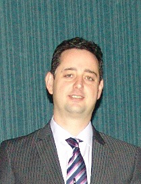
Profº Ricardo Della Coletta - - Associated Professor, Pathology area, Faculty of Dentistry of Piracicaba, State University of Campinas (Unicamp)
Biological markers or simply biomarkers may be useful in various stages of treatment of the patient with cancer, by aiding in diagnostic procedures, staging, evaluation of therapeutic response, and prognosis of recurrences detection. Eventually you can determine risk groups for the development of a specific type of tumor and even assist in the development of new treatment modalities.
Although many efforts have been undertaken in order to identify biomarkers for mouth cancer, none, so far, it is actually used in clinical routine. In other words, no marker is indicative of the behavior of oral cancers or patient prognosis. As reviewed by Tine M Søland & Ingvild J Brusevold in the article "Prognostic molecular markers in cancer - quo vadis?" (Histopathology 2013, 63, 297-308.) - I recommend reading this manuscript to all concerned in this area - the lack of biomarkers in oral cancer is largely due to studies with inadequate approaches, including study design, sample size and statistical methods. Another interesting point is that the vast majority of studies always search for new markers, and there is a resistance to validation studies confirm that aim at different times, the effectiveness of a biomarker.
Even today, the clinical stage of TNM and the histopathologic characteristics of the tumor are the main indicators of clinical management of patients with oral cancer. However, it is recognized that these aspects have limitations and cannot represent the wide clinical variability, genetic and behavioral mouth cancers. Therefore, it is essential to seek for factors that may characterize the biological behavior of the tumor, serving as a parameter to decide which the best therapeutic approach to the patient is and assisting as a predictive tool for prognosis.
Mouth cancer is genetically very heterogeneous and this may influence the tumor's biological behavior. Injuries to the same location and similar clinical and histological aspects may have different behaviors. Therefore, to know the biological events associated with mouth cancer becomes a fundamental step before any application in clinical practice.
The success of biomarkers for the diagnosis and management of cancer is notorious. A good example is the oncoprotein c-erb-B2 that – when present in breast cancers – indicates a more aggressive tumor, calling for a highly effective specific treatment. Thus, studies in the search for biomarkers should continue, but multicenter studies with large samples with greater standardization in the collection and processing of information and with long follow-up periods must have greater success in identifying biomarkers for mouth cancer.
The biomarkers most studied in oral cancer are p53, Ki67 and EGF / EGFR, but as pointed out, none of these showed consistency between different studies. It is difficult to highlight a specific marker and I actually believe that there is no single marker, but a set of markers that together can contribute to guide the best therapeutic option for patients and for predicting prognosis. Until recently, it looked for biomarkers related to cell proliferation, but today it is aware that events associated with migration and tumor invasion may be more relevant. So much has been invested in understanding the mechanisms to promote tumor invasion and sought for biomarkers associated with this process. In addition, besides the studies that examine genes / proteins specific to the tumor cell, much attention has also been paid to interactions with the tumor microenvironment, especially events related to angiogenesis, inflammatory response and the presence of CAFS (fibroblasts carcinoma-associated)